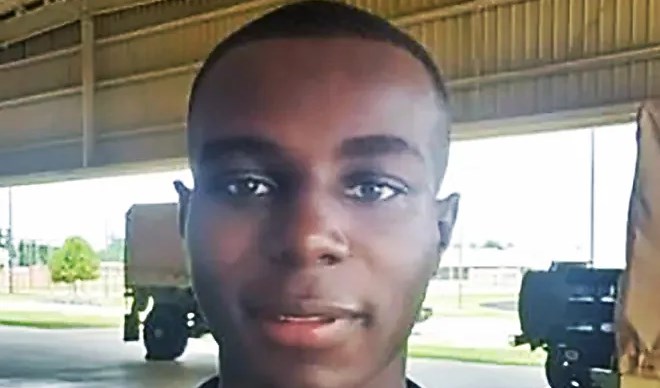The US soldier that crossed to the DPRK
Although it remains unknown how long Travis King had been in South Korea, US officials did say that he faced disciplinary action for assault and spent 50 days in a detention facility.
-

A picture of Private Travis King, who crossed over to the DPRK. (Facebook)
The soldier who crossed the demarcation line into the DPRK has been identified by the US Army on Tuesday as Private (Pvt) Travis King.
According to US military officials, King “willfully and without authorization” crossed over during a civilian tour of the Joint Security Area, which is a demilitarized zone that has separated the two Koreas since the end of the Korean War in 1953.
In a statement, US Forces Korea spokesperson Col. Isaac Taylor said, “We believe he is currently in (Democratic People’s Republic of Korea) custody and are working with our (Korean People’s Army) counterparts to resolve this incident".
King, a cavalry scout who joined the military in January 2021, was assigned to the 6th Squadron, 1st Cavalry Regiment, 1st Brigade Combat Team, 1st Armored Division out of Fort Bliss, Texas, at the time of his duty in South Korea, per Army spokesperson Bryce Dubee.
Although it remains unknown how long King had been in South Korea, US officials did say that he faced disciplinary action for assault and spent 50 days in a detention facility, after which he was escorted to an airport for a flight back to the US.
However, at the airport, his escorts could not enter a security checkpoint with him, and King left the airport and made his way to the tour of the Joint Security Area.
King is considered to be the first US soldier to cross into the DPRK since 1982.
Read next: DPRK warns US of nuclear deterrence if it continues 'hostile policy'
His mother, Claudine Gates, expressed to ABC News that she was “shocked”.
"I can’t see Travis doing anything like that," she said, explaining that she spoke to her son several days ago, and he told her that he’d be returning to his base in Fort Bliss.
As a private, King may not have had access to top-secret information, but just by being a US soldier, he may have intel about things like base layouts or what units and numbers of troops are there, which gives the DPRK a potentially powerful bargaining card.
The UN Command, which oversees operations in the demilitarized zone, said it was “working with our (North) Korean People’s Army counterparts to resolve this incident.” King's intentions currently remain unclear.
Previous defections
The last American to have crossed over to the DPRK was Bruce Byron Lowrance, who crossed over from China to the DPRK in October 2018. Lowrance was accused of working for the CIA but was released a month after being taken into custody, with the mediation of the Swedish Embassy in the DPRK.
Another case of an American being held in North Korea is that of Otto Warmbier, a US college student who went to the DPRK as a tourist back in 2016 and his 5-day stay became a year and a half's worth of detention after he was caught stealing in his hotel.
Although he was sentenced to 15 years of hard labor, and was later released to US officials in 2017, Warmbier's physical health was in poor condition, and died less than a week after returning to the US.
The most famous case of a US soldier crossing over was that of US Army sergeant Charles Jenkins who crossed in 1965 while stationed at a US military unit near the demilitarized zone. During his stay in the DPRK, he appeared in films, taught North Korean spies English, and studied the writings of North Korean leaders almost eight hours a day. King later left the DPRK in 2004.
South Korean news agency Yonhap reported yesterday that the DPRK launched at least one ballistic missile into the sea hours after a senior US official confirmed on Tuesday that a US nuclear-armed ballistic missile submarine (SSBN) is in South Korea, in a first since the 1980s.
On Monday, the DPRK accused a US spy plane of violating the DPRK's airspace and continued to decry US plans to deploy a nuclear missile submarine near the Korean peninsula.
Member of the State Affairs Commission of the DPRK Kim Yo Jong said on Friday that unless the US ceases to carry out its "hostile policy" against the DPRK, Pyongyang will unleash "overwhelming nuclear deterrence."

 4 Min Read
4 Min Read










